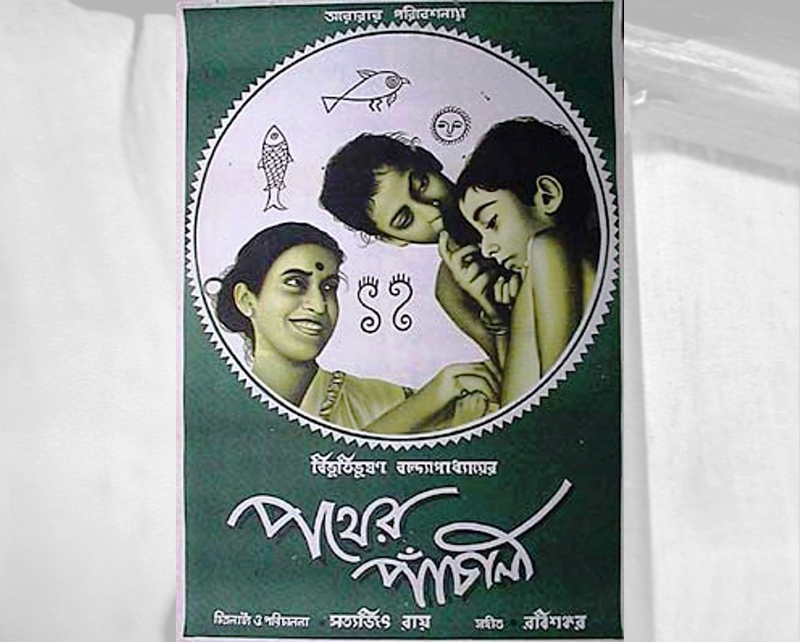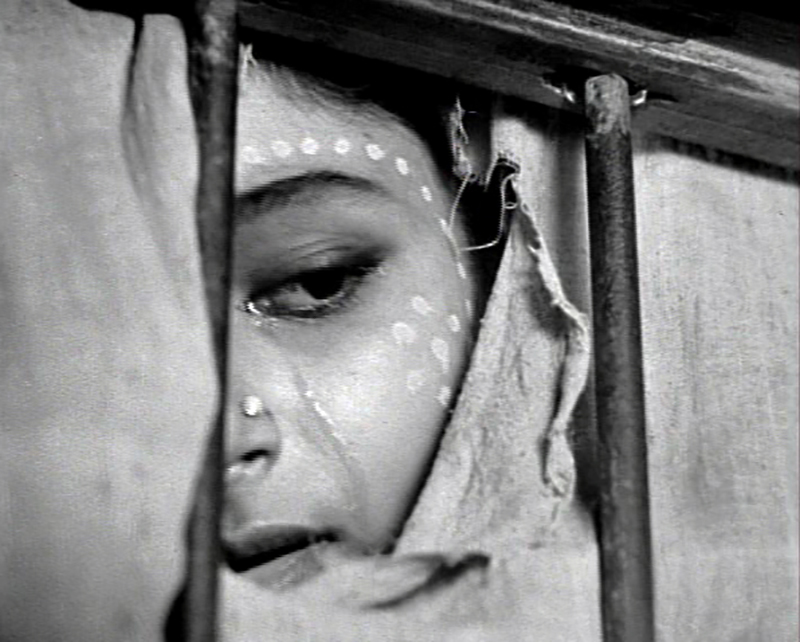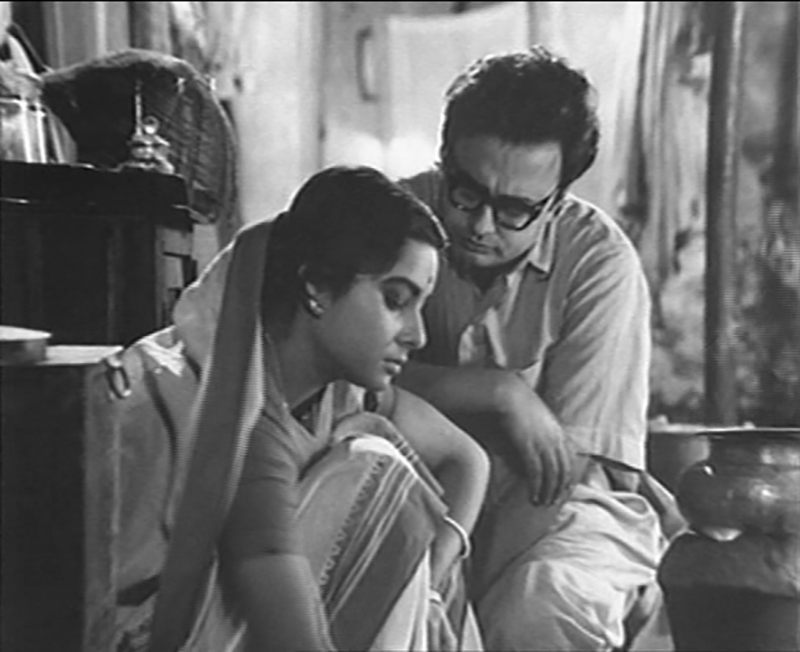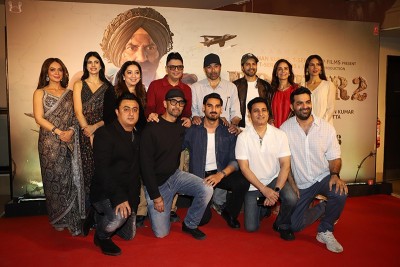 Satyajit Ray
Satyajit Ray
KIFF screens Rayscope, a tribute to Satyajit Ray by Premendu Bikash Chaki
Premendu Bikash Chaki, a veteran cinematographer who is now also a successful director, has paid a 25-minute tribute to Satyajit Ray, which is being screened at the ongoing 27th Kolkata International Film Festival (KIFF).
The film is aptly titled Rayscope as it elaborates on the maestro's attention to the minutest of details that enhance each scene and extend beyond what the visual scene conveys in terms of time, space and people.
This is a 'looking back' at Ray as an outstanding filmmaker as perceived by noted scholars, filmmakers, journalists and historians of cinema.
The film focuses mainly on five Ray films - Pather Panchali, Apur Sansar, Kanchenjungha, Mahanagar and Kapurush-O-Mahapurush. The director picks some selected film clips from the original films and dissects them himself along with supporting comments from noted veterans from different fields of cinema.
Among those who present these films from their personal perspective are - Nirmal Dhar, journalist, Shampali, journalist, Nabinanda Sen, film scholar and ex-professor, Ritabrata Mukherjee, actor, Padmanava Dasgupta, scriptwriter and author, and so on.
The scene chosen from Pather Panchali is the one featuring Tulsi Chakraborty as the owner of the local grocer's shop which also doubles up as a pathshala - an informal 'school' to teach small boys the three "R's. The scene shows Tulsi Chakraborty as the grocer-cum-pandit, serving his village customers and also scolding the naught boys who, instead of doing sums, are playing noughts and crosses on their slates.
The story goes that after his interaction with the actor Tulsi Chakraborty while working in Pather Panchali, Ray decided to make Parash Pathar (The Philosopher's Stone), based on a humorous story with Chakraborty playing the main role. The rest, as the saying goes, is history.

Apur Sansar is centered on the close relationship between Apu and his wife Aparna, which had a very brief life but was so full of sweet memories that when Aparna passed away in childbirth, the idea of remarriage was anathema to him.
It shows how Apu looks absent-mindedly out of his office window after reading Aparna's letter in which she expresses her envy towards the neighbouring girl as the latter can see Apu all the time but she cannot. He reads her letters strap-hanging in a crowded bus while an elderly man tries to read it over his shoulder.
The scene from Kanchenjunga is picked when the industrialist (Chhabi Biswas) is talking to his brother-in-law (Pahari Sanyal) while the latter is trying to explain to him the discovery of a very rare species of bird as he is an avid bird-watcher.
But the only question Biswas asks him is "Can this be roasted and served?" to which the other man shockingly says "no." This underscores the contrast between the two men. While one is a consumer the other is a devoted nature-lover who is not interested in material results.
Mahanagar underscores Ray's handling of the interior shots within the Mazumdar home that points out that they lived in such a cramped flat that wiped away any distances between and among the family members.

It shows close family scenes such as the little boy Pintoo, asking "Who is going to the zoo?" when he hears his mother Arati, asking her husband Subroto whether Mazumdar is spelt with a "j" or a "z". When he asks again when they will go to the zoo, his father picks him up and says, the Sunday after this Sunday.
The director says that this scene, besides focussing on the close-knit family of the Majumdar's also very subtly points out the time-frames that spells out the financial position of the family as "this Sunday" marks the end of the month when a visit to the zoo cannot be afforded while the Sunday after "this Sunday" will mark the beginning of the following month when Subroto has just got his salary.
Kapurush-O-Mahapurush repeats the famous scene that culminates in the "Mahapurush" pulling out the sun rising across the horizon and explaining to the now-devoted elderly man that the sun refuses to rise unless he wakes it up.
Considering the film spans 25 minutes, it is well-made.
Support Our Journalism
We cannot do without you.. your contribution supports unbiased journalism
IBNS is not driven by any ism- not wokeism, not racism, not skewed secularism, not hyper right-wing or left liberal ideals, nor by any hardline religious beliefs or hyper nationalism. We want to serve you good old objective news, as they are. We do not judge or preach. We let people decide for themselves. We only try to present factual and well-sourced news.






